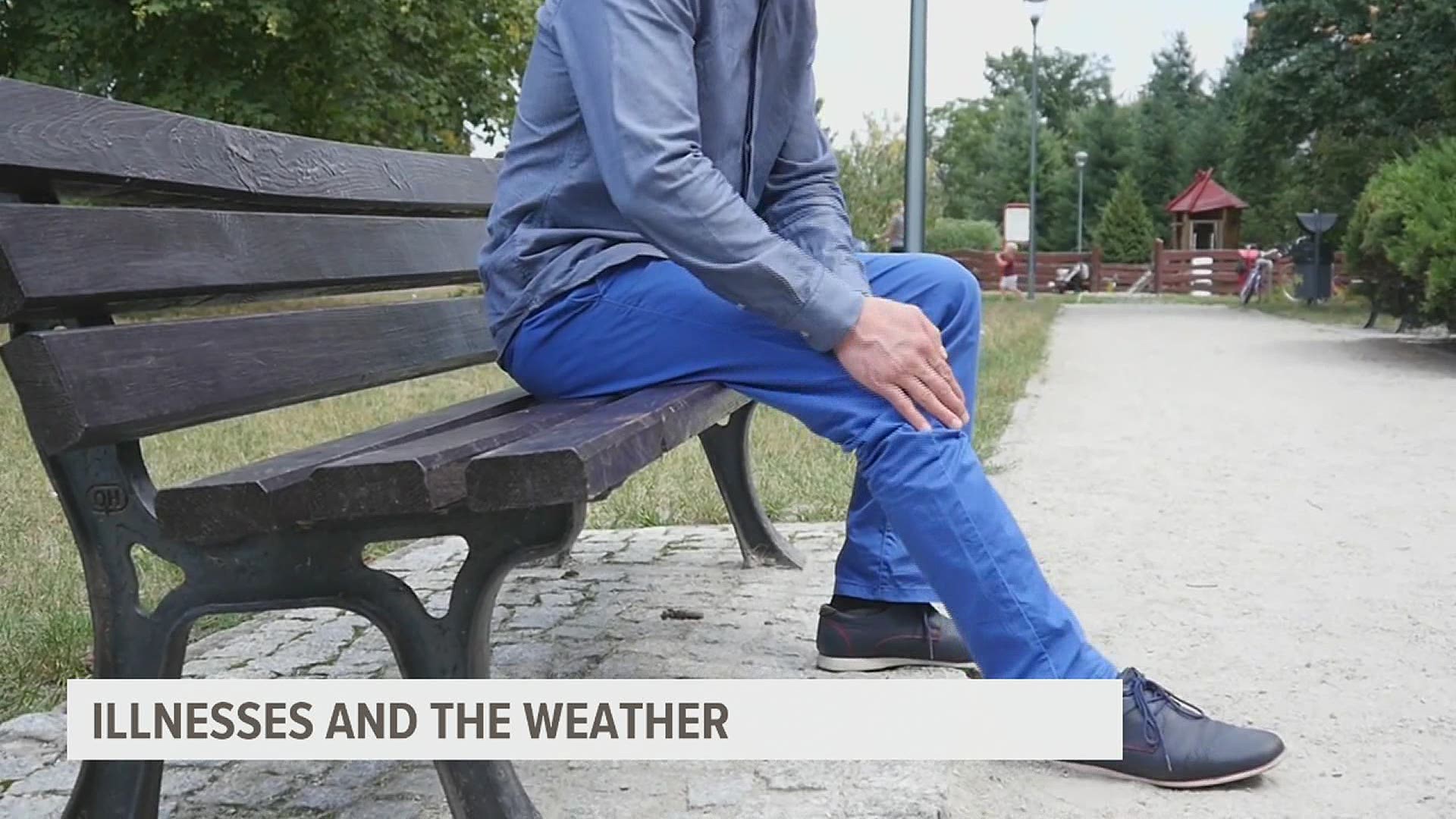YORK, Pa. — As the weather gets colder, many people complain of problems with headaches, joint pain and more.
There tend to be two types of health issues that occur as the temperatures get colder: joint pain and cold/flu/allergy symptoms.
Let's tackle those two issues to see how the weather impacts both, if either.
Dr. David Gasperack of Wellspan Health says the old wives' tale of how joint pain is a tale-tell sign of a big storm coming, not just in winter but all year long, is true.
"There is proof that changes in temperature, changes in humidity, changes in barometric pressure - they can cause symptoms in our bodies, usually based on inflammation," Dr. Gasperack said. "They can cause worsening pain in the joints, all of those symptoms are brought on by changes in weather. It's absolutely true."
Now to the more complicated matter around sinus symptoms. Dr. Gasperack says the challenge lies in determining if you have allergic or non-allergic rhinitis. Allergic is caused by changes in pollen and more, just like your allergies.
Non-allergic can be caused by other things, including the weather. However, Dr. Gasperack says the weather can't technically make you sick.
"Being out in the cold does not give you a cold. It can give you symptoms of a cold," Dr. Gasperack said. "But the weather changes can't make you sick. The moral of the story is, weather changes can cause symptoms that mimic viral illnesses, but they cannot in and of themselves cause a viral illness."
However, cold and flu certainly spread more easily in the winter months.
"Rhinovirus replicates more efficiently in cold weather. Just being cold outside means the virus can spread quicker," Dr. Gasperack said.
We're also inside more rather than outside in open space, which also plays a factor.
"There's a chance of person-to-person transmission of a virus more in the winter months than the summer months," Dr. Gasperack said.
However, other than treatment with anti-histamines if allergic rhinitis is determined, the treatment for both types of symptoms overlap.
"To treat both, we use the same things: a sinus rinse, steroid nasal sprays, and then decongestants," Dr. Gasperack said.
Doctors remind their patients to eat healthy, stay hydrated, get plenty of sleep and exercise to reduce your chances of getting sick. During this time of the year, you also can stay on a regular Vitamin C supplement. Doctors also encourage a Zinc supplement if you begin feeling symptoms of a cold.
For more information, you can always call your doctor and visit the CDC's website.

